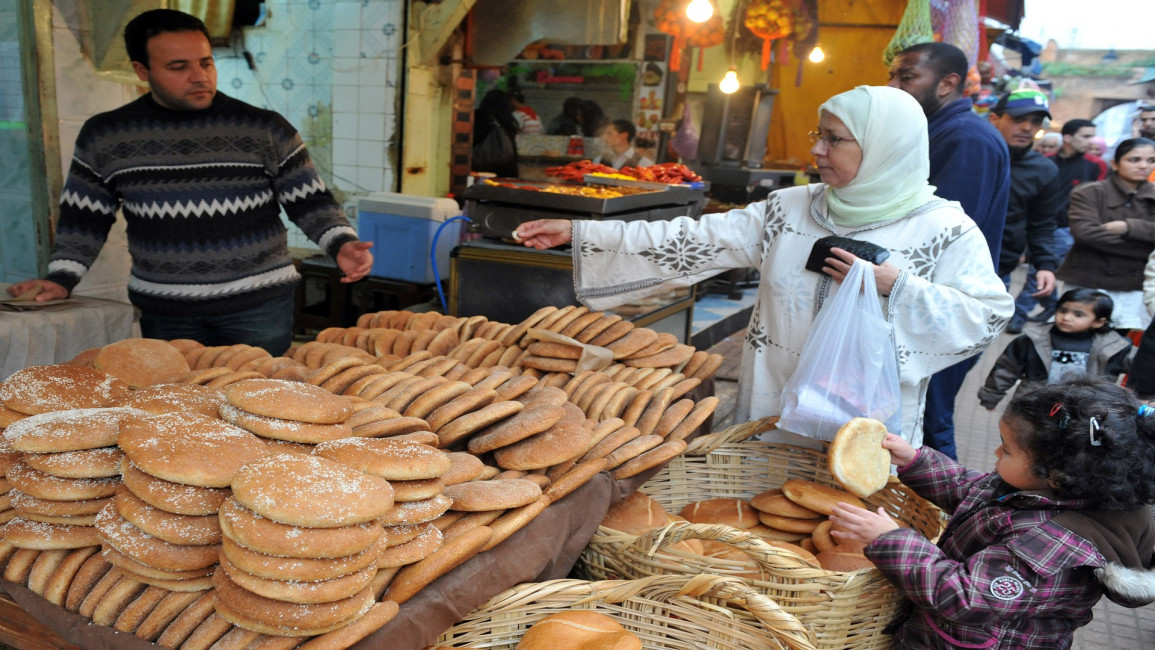IMF says Egypt on track for next aid tranche
IMF says Egypt on track for next aid tranche
The IMF has said Egypt has made a good start on economic reforms that include cutting subsidies and raising taxes.
2 min read
Egypt has reduced subsidies causing drastic price rises [Getty]
Egypt has made a "good start" on reforms under a loan deal with the International Monetary Fund and soaring inflation is expected to drop around mid-2017, an IMF official said Wednesday.
Chris Jarvis, the international lender's mission chief in Egypt, said the North African country's implementation of the reforms had put it on track to receive its next aid tranche.
"I think Egypt's made a... good start" on the reforms, Jarvis said in a live webcast.
Under the $12 billion loan deal agreed last year, Egypt needs to cut energy subsidies, raise taxes and seek more international financing.
Egypt faces major economic challenges after the political turmoil that followed the 2011 uprising that toppled longtime leader Hosni Mubarak.
Economic growth has slowed, investment has fallen sharply and currency reserves have plunged.
Consumer prices have surged since November when the central bank floated the Egyptian pound and slashed fuel subsidies as part of the three-year IMF loan deal.
The Egyptian currency, which had been pegged at 8.83 to the dollar, was trading at almost 19 pounds to the dollar on Wednesday.
Jarvis said he expected there had been some "overshoot" after the pound was floated and it may appreciate during the year.
The pound's decline against the dollar contributed to the inflation rate, which rose to 24.4 percent in December, the highest in years.
Jarvis said that could change if "policies are kept reasonably tight".
"By the second half of this year we would expect to see quite significant falls in inflation," he said.
Jarvis said Egypt appeared to be reaching the benchmarks - including the level of international reserves - to qualify for the second tranche due in the spring.
An IMF report said the second tranche should amount to $1.25 billion.
"Things are going pretty well. As I said the government is doing what it said it would do and the central bank is doing what it said it would do," said Jarvis.
In addition to the pound's devaluation, authorities also increased tariffs on hundreds of imported items to up to 60 percent in December and introduced a value-added tax in September.
The IMF approved the first $2.75 billion tranche in November after Egypt saw its foreign currency reserves plunge amid political turmoil since the 2011 uprising.
The tourism sector, one of the main sources of foreign currency, has been badly hit by a persistent jihadist insurgency.
President Abdel Fattah al-Sisi, who led the 2013 military overthrow of Mohamed Morsi, Egypt's first elected civilian president, vowed to get the economy back on track after his election the following year.
Chris Jarvis, the international lender's mission chief in Egypt, said the North African country's implementation of the reforms had put it on track to receive its next aid tranche.
"I think Egypt's made a... good start" on the reforms, Jarvis said in a live webcast.
Under the $12 billion loan deal agreed last year, Egypt needs to cut energy subsidies, raise taxes and seek more international financing.
Egypt faces major economic challenges after the political turmoil that followed the 2011 uprising that toppled longtime leader Hosni Mubarak.
Economic growth has slowed, investment has fallen sharply and currency reserves have plunged.
Consumer prices have surged since November when the central bank floated the Egyptian pound and slashed fuel subsidies as part of the three-year IMF loan deal.
The Egyptian currency, which had been pegged at 8.83 to the dollar, was trading at almost 19 pounds to the dollar on Wednesday.
Jarvis said he expected there had been some "overshoot" after the pound was floated and it may appreciate during the year.
The pound's decline against the dollar contributed to the inflation rate, which rose to 24.4 percent in December, the highest in years.
Jarvis said that could change if "policies are kept reasonably tight".
"By the second half of this year we would expect to see quite significant falls in inflation," he said.
Jarvis said Egypt appeared to be reaching the benchmarks - including the level of international reserves - to qualify for the second tranche due in the spring.
An IMF report said the second tranche should amount to $1.25 billion.
"Things are going pretty well. As I said the government is doing what it said it would do and the central bank is doing what it said it would do," said Jarvis.
In addition to the pound's devaluation, authorities also increased tariffs on hundreds of imported items to up to 60 percent in December and introduced a value-added tax in September.
The IMF approved the first $2.75 billion tranche in November after Egypt saw its foreign currency reserves plunge amid political turmoil since the 2011 uprising.
The tourism sector, one of the main sources of foreign currency, has been badly hit by a persistent jihadist insurgency.
President Abdel Fattah al-Sisi, who led the 2013 military overthrow of Mohamed Morsi, Egypt's first elected civilian president, vowed to get the economy back on track after his election the following year.



